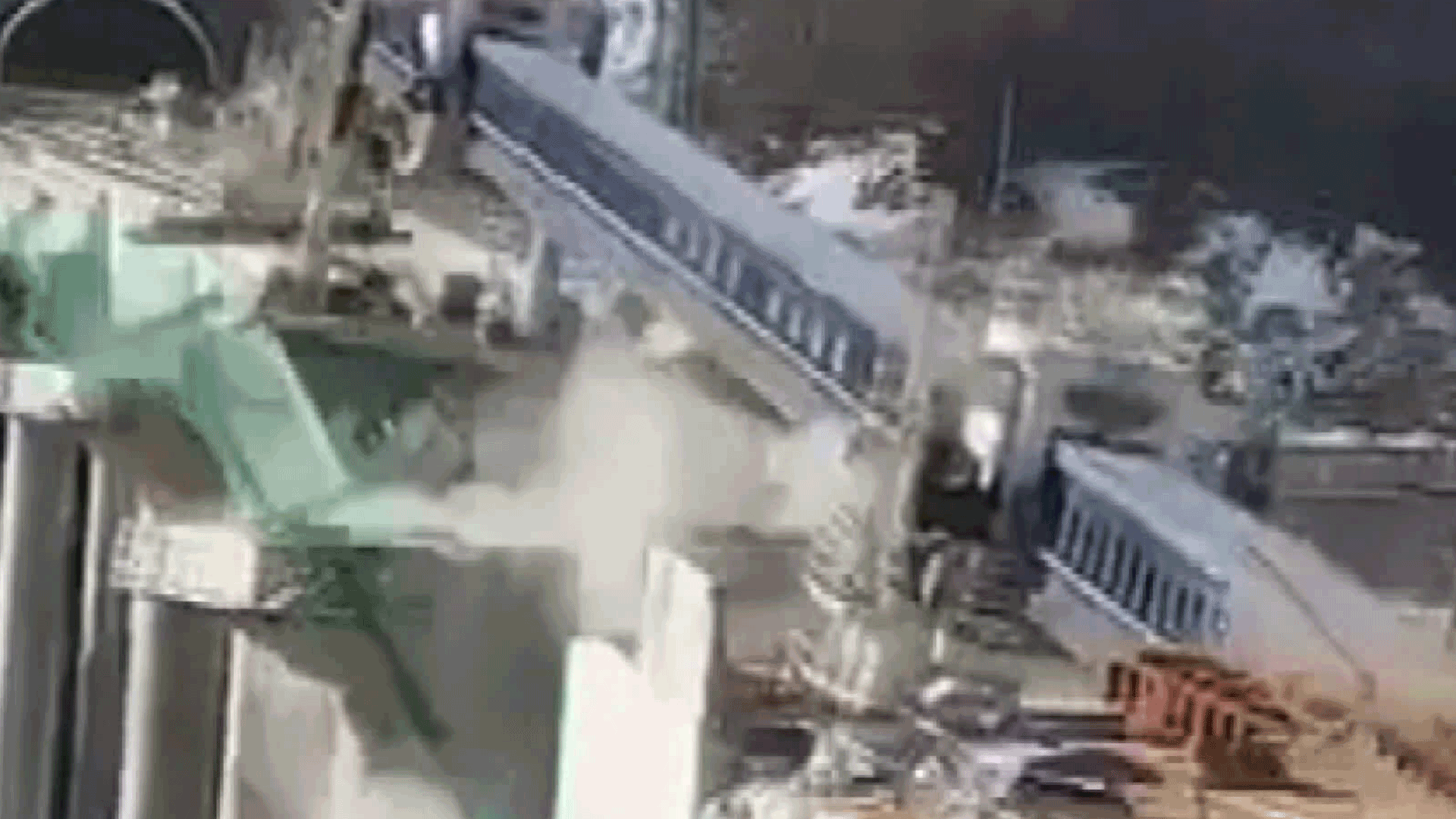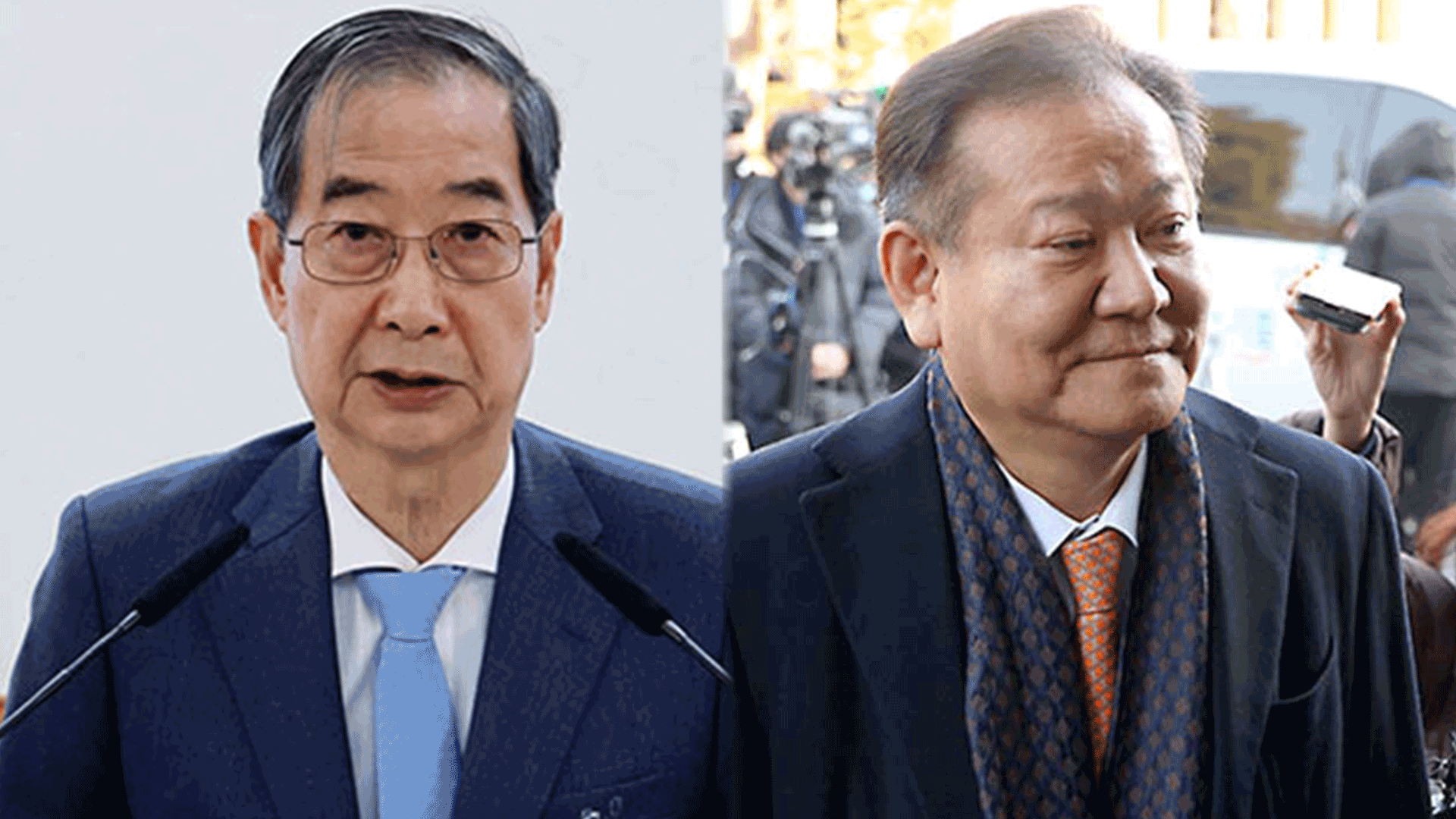[Anchor]
While our government continues to send conciliatory messages, stating that it will restore the September 19 military agreement and will not pursue absorption unification, North Korea is not responding at all.
On the contrary, as you just saw, they have declared their intention to strengthen their nuclear capabilities.
Reporter Yang Min-cheol has analyzed why this is happening.
[Report]
In response to the government's gestures for dialogue, North Korea has been increasing its criticism of South Korea daily, and this time it has responded with 'nuclear power enhancement'.
This clearly indicates that they have no intention of changing the 'hostile two-state' stance for the time being.
Of course, some point out that since there has always been backlash against the ROK-U.S. exercises, it may not be necessary to interpret this as a message of refusal to engage in dialogue.
The presidential office also assessed it as a "response that is always repeated," characterizing it as a typical level of reaction.
However, it is noteworthy that, unlike in the past when mainly military officials or Kim Yo-jong spoke, Chairman Kim Jong-un himself has directly criticized the joint exercises.
It seems that they are using the ROK-U.S. exercises as a justification for enhancing their nuclear capabilities while strongly pressuring South Korea and the U.S., who desire dialogue, to 'halt the joint training'.
They showed 'goodwill' by postponing half of the outdoor maneuver training, but that is deemed insufficient.
[Park Won-gon/Professor of North Korean Studies at Ewha Womans University: "(North Korea) has been raising specific issues regarding the joint exercises and the deployment of U.S. strategic assets since Trump's election. They must be halted as a minimum condition for a U.S.-North Korea summit..."]
Furthermore, there is an underlying intention to undermine the dialogue itself, which is premised on 'denuclearization'.
[Hong Min/Senior Research Fellow at the Korea Institute for National Unification: "To express a fundamental rejection related to denuclearization, they are showing a strong will for nuclear armament while refraining from provocative responses..."]
In particular, there is an interpretation that this message is aimed at preemptively blocking discussions on North Korea's denuclearization principles and their inclusion in the statement at the upcoming ROK-U.S. summit next week.
This is KBS News, Yang Min-cheol.
While our government continues to send conciliatory messages, stating that it will restore the September 19 military agreement and will not pursue absorption unification, North Korea is not responding at all.
On the contrary, as you just saw, they have declared their intention to strengthen their nuclear capabilities.
Reporter Yang Min-cheol has analyzed why this is happening.
[Report]
In response to the government's gestures for dialogue, North Korea has been increasing its criticism of South Korea daily, and this time it has responded with 'nuclear power enhancement'.
This clearly indicates that they have no intention of changing the 'hostile two-state' stance for the time being.
Of course, some point out that since there has always been backlash against the ROK-U.S. exercises, it may not be necessary to interpret this as a message of refusal to engage in dialogue.
The presidential office also assessed it as a "response that is always repeated," characterizing it as a typical level of reaction.
However, it is noteworthy that, unlike in the past when mainly military officials or Kim Yo-jong spoke, Chairman Kim Jong-un himself has directly criticized the joint exercises.
It seems that they are using the ROK-U.S. exercises as a justification for enhancing their nuclear capabilities while strongly pressuring South Korea and the U.S., who desire dialogue, to 'halt the joint training'.
They showed 'goodwill' by postponing half of the outdoor maneuver training, but that is deemed insufficient.
[Park Won-gon/Professor of North Korean Studies at Ewha Womans University: "(North Korea) has been raising specific issues regarding the joint exercises and the deployment of U.S. strategic assets since Trump's election. They must be halted as a minimum condition for a U.S.-North Korea summit..."]
Furthermore, there is an underlying intention to undermine the dialogue itself, which is premised on 'denuclearization'.
[Hong Min/Senior Research Fellow at the Korea Institute for National Unification: "To express a fundamental rejection related to denuclearization, they are showing a strong will for nuclear armament while refraining from provocative responses..."]
In particular, there is an interpretation that this message is aimed at preemptively blocking discussions on North Korea's denuclearization principles and their inclusion in the statement at the upcoming ROK-U.S. summit next week.
This is KBS News, Yang Min-cheol.
■ 제보하기
▷ 카카오톡 : 'KBS제보' 검색, 채널 추가
▷ 전화 : 02-781-1234, 4444
▷ 이메일 : kbs1234@kbs.co.kr
▷ 유튜브, 네이버, 카카오에서도 KBS뉴스를 구독해주세요!
- NK vows stronger nuclear power
-
- 입력 2025-08-20 00:06:07

[Anchor]
While our government continues to send conciliatory messages, stating that it will restore the September 19 military agreement and will not pursue absorption unification, North Korea is not responding at all.
On the contrary, as you just saw, they have declared their intention to strengthen their nuclear capabilities.
Reporter Yang Min-cheol has analyzed why this is happening.
[Report]
In response to the government's gestures for dialogue, North Korea has been increasing its criticism of South Korea daily, and this time it has responded with 'nuclear power enhancement'.
This clearly indicates that they have no intention of changing the 'hostile two-state' stance for the time being.
Of course, some point out that since there has always been backlash against the ROK-U.S. exercises, it may not be necessary to interpret this as a message of refusal to engage in dialogue.
The presidential office also assessed it as a "response that is always repeated," characterizing it as a typical level of reaction.
However, it is noteworthy that, unlike in the past when mainly military officials or Kim Yo-jong spoke, Chairman Kim Jong-un himself has directly criticized the joint exercises.
It seems that they are using the ROK-U.S. exercises as a justification for enhancing their nuclear capabilities while strongly pressuring South Korea and the U.S., who desire dialogue, to 'halt the joint training'.
They showed 'goodwill' by postponing half of the outdoor maneuver training, but that is deemed insufficient.
[Park Won-gon/Professor of North Korean Studies at Ewha Womans University: "(North Korea) has been raising specific issues regarding the joint exercises and the deployment of U.S. strategic assets since Trump's election. They must be halted as a minimum condition for a U.S.-North Korea summit..."]
Furthermore, there is an underlying intention to undermine the dialogue itself, which is premised on 'denuclearization'.
[Hong Min/Senior Research Fellow at the Korea Institute for National Unification: "To express a fundamental rejection related to denuclearization, they are showing a strong will for nuclear armament while refraining from provocative responses..."]
In particular, there is an interpretation that this message is aimed at preemptively blocking discussions on North Korea's denuclearization principles and their inclusion in the statement at the upcoming ROK-U.S. summit next week.
This is KBS News, Yang Min-cheol.
While our government continues to send conciliatory messages, stating that it will restore the September 19 military agreement and will not pursue absorption unification, North Korea is not responding at all.
On the contrary, as you just saw, they have declared their intention to strengthen their nuclear capabilities.
Reporter Yang Min-cheol has analyzed why this is happening.
[Report]
In response to the government's gestures for dialogue, North Korea has been increasing its criticism of South Korea daily, and this time it has responded with 'nuclear power enhancement'.
This clearly indicates that they have no intention of changing the 'hostile two-state' stance for the time being.
Of course, some point out that since there has always been backlash against the ROK-U.S. exercises, it may not be necessary to interpret this as a message of refusal to engage in dialogue.
The presidential office also assessed it as a "response that is always repeated," characterizing it as a typical level of reaction.
However, it is noteworthy that, unlike in the past when mainly military officials or Kim Yo-jong spoke, Chairman Kim Jong-un himself has directly criticized the joint exercises.
It seems that they are using the ROK-U.S. exercises as a justification for enhancing their nuclear capabilities while strongly pressuring South Korea and the U.S., who desire dialogue, to 'halt the joint training'.
They showed 'goodwill' by postponing half of the outdoor maneuver training, but that is deemed insufficient.
[Park Won-gon/Professor of North Korean Studies at Ewha Womans University: "(North Korea) has been raising specific issues regarding the joint exercises and the deployment of U.S. strategic assets since Trump's election. They must be halted as a minimum condition for a U.S.-North Korea summit..."]
Furthermore, there is an underlying intention to undermine the dialogue itself, which is premised on 'denuclearization'.
[Hong Min/Senior Research Fellow at the Korea Institute for National Unification: "To express a fundamental rejection related to denuclearization, they are showing a strong will for nuclear armament while refraining from provocative responses..."]
In particular, there is an interpretation that this message is aimed at preemptively blocking discussions on North Korea's denuclearization principles and their inclusion in the statement at the upcoming ROK-U.S. summit next week.
This is KBS News, Yang Min-cheol.
이 기사가 좋으셨다면
-
좋아요
0
-
응원해요
0
-
후속 원해요
0















이 기사에 대한 의견을 남겨주세요.